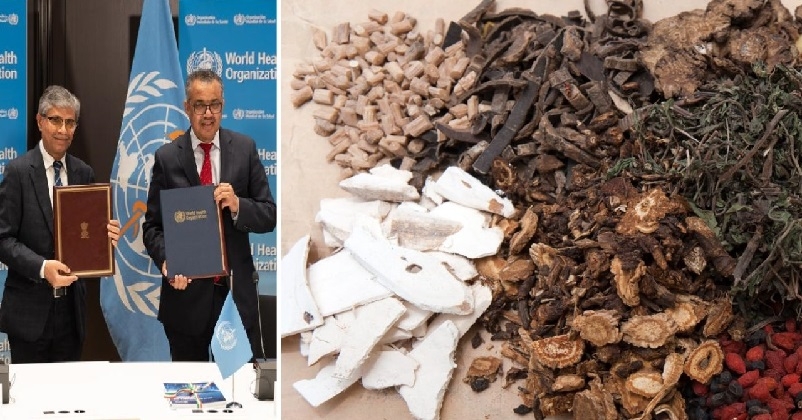Ayurveda goes #global, WHO to establish Global Center for Traditional Medicine with the help of India
| 26-Mar-2022 |

The 'World Health Organisation' (WHO) and the Government of India have signed an agreement to establish the 'WHO Global Centre for Traditional Medicine' at Jamnagar, Gujarat.
Admiring the initiative, Prime Minister Narendra Modi on Saturday said that India is honoured to be home to World Health Organization's Global Centre for Traditional Medicine." Through various initiatives, our government has been tireless in its endeavour to make preventive and curative healthcare, affordable and accessible to all.
May the global centre at Jamnagar help in providing the best healthcare solutions to the world," he added.
On Friday, the Ministry of Ayush signed an agreement with the UN health agency for the establishment of the WHO Global Centre for Traditional Medicine in India at Jamnagar, Gujarat. Its interim office will be at the Institute of Training and Research in Ayurveda in Gujarat.
This global knowledge centre for traditional medicine, supported by an investment of USD 250 million from the Government of India, aims to harness the potential of traditional medicine from across the world through modern science and technology to improve the health of people and the planet. For many millions of people around the world, traditional medicine is the first port of call to treat many diseases, WHO said.
Traditional medicine is used by almost 80% of the world's population, according to WHO. To date, 170 of the 194 WHO's Member States have acknowledged using traditional medicine. Many governments have urged WHO for help in compiling a body of trustworthy data and evidence on traditional medicine products.
The term traditional medicine encircles ancient practices such as acupuncture, ayurvedic medicine and herbal mixtures as well as modern medicines to maintain health and prevent, diagnose and treat physical and mental illness, read WHO statement.